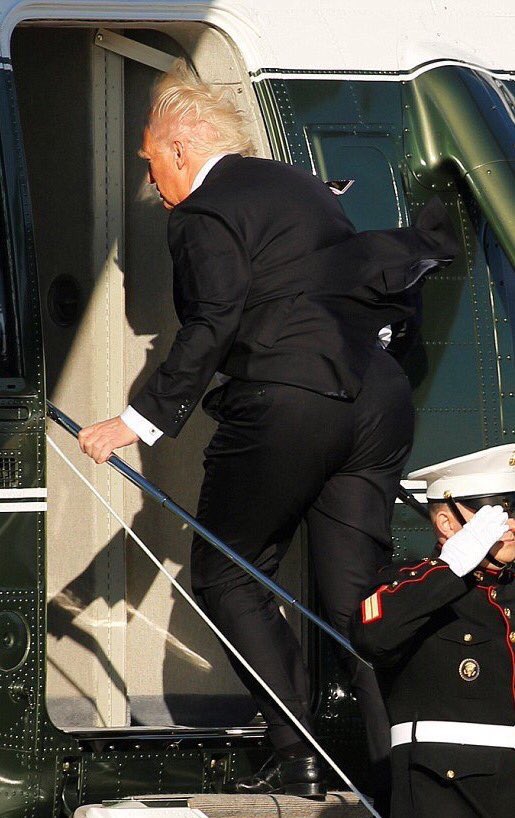Did the Buy American, Hire American executive order, signed by President Donald Trump in April 2017, truly reshape the landscape for foreign workers in the United States? The answer is a resounding yes, as evidenced by shifts in visa approvals, employment trends, and the overall climate for international talent seeking opportunities within the U.S. borders.
The Trump administration's policies, particularly concerning immigration, sent ripples across various sectors, notably the tech industry, which heavily relies on the H-1B visa program. This program, designed to allow U.S. employers to temporarily employ foreign workers in specialized occupations, became a focal point of the administration's efforts to prioritize American workers. This shift in policy brought about consequences, with implications felt by both companies and employees, leading to changes in hiring practices, and even affecting decisions about where to locate their businesses.
The State Department, in a move that further tightened the screws, reduced the eligibility window for visa interview waivers from 48 months to a mere 12 months. This change, implemented across American embassies worldwide, including in India, added another layer of complexity and potential delay for those seeking entry into the U.S. The repercussions of these changes were far-reaching, creating uncertainty and anxiety among prospective immigrants and prompting businesses to re-evaluate their strategies for talent acquisition.
The H-1B visa program, a long-standing element of the U.S. immigration system, became the epicenter of an immigration dispute, pitting Donald Trump's supporters against each other. The debate surrounding H-1B visas and its implications for the U.S. economy and workforce became a prominent issue.
The impact of these changes was particularly evident in the tech sector. Companies like Amazon, Google, Meta, Microsoft, and Apple, who are major beneficiaries of the H-1B program, were among the top employers of H-1B recipients in 2024, faced increased scrutiny. The changes in visa policies and the broader immigration climate created an environment of uncertainty that rippled through the tech industry. This created a situation of uncertainty for both companies and employees, causing some to reconsider their strategies and decisions. The potential for a crackdown on H-1B visas led to concerns about the future of the tech workforce and the ability of U.S. companies to compete globally.
The debate over H-1B visas also sparked discussions among Republican circles. With the U.S. granting 65,000 H-1B visas annually, the program's future became a contentious issue. This dispute highlighted a clear divide between Trump supporters, such as tech tycoon Elon Musk, and immigration hardliners. The varying perspectives on the role of foreign workers in the U.S. economy and the balance between protecting American jobs and fostering innovation came to the forefront.
The anticipation of stricter immigration policies, as expressed by President-elect Donald Trump, caused considerable unease among foreign workers in the tech industry. Companies urged their international employees to return to the U.S. before a specific date, fearing that they might encounter difficulty re-entering the country. This created a sense of urgency and anxiety, with many employees worried about their ability to continue working in the U.S. The fear of a visa crackdown prompted both individual workers and companies to take precautionary measures, reflecting the widespread concern about the potential impact of the Trump administration's policies.
The broad implications of the Trump administration's immigration crackdown extended beyond the tech sector, encompassing various aspects of life for immigrants in the United States. The administration's actions, characterized by a hardline approach, led to individuals being denied visas, detained, or deported. This impacted not only those seeking to enter the country but also those already living and working in the U.S., affecting families and communities. Students and academics, too, found themselves targeted, with reports of individuals disappearing as a result of the administration's policies. The consequences of these actions were far-reaching, leaving a lasting impact on the lives of many.
The landscape for foreign workers in the U.S. has been significantly altered by the various policies and actions. The effects are still being felt today. The changes in visa regulations, the increased scrutiny of the H-1B program, and the broader anti-immigration sentiment have led to a more complex and challenging environment for both employers and employees. It is essential to understand the impact of these changes and consider the long-term implications for the U.S. economy, workforce, and global competitiveness.
The shifts in policy and the broader immigration landscape created an environment of uncertainty. The full impact of these changes continues to unfold. They've reshaped the environment for both employers and employees. Whether it's the tech industry's reliance on specialized skills, the broader debate over immigration, or the individual stories of those affected, the consequences of these shifts are undeniable.
The following table summarizes some key facts about the H-1B visa program and the policies enacted during the Trump administration, offering a snapshot of the changing landscape for foreign workers in the United States:
| Topic | Details |
|---|---|
| Executive Order | Buy American, Hire American signed in April 2017. |
| H-1B Visa Program | Allows U.S. employers to temporarily employ foreign workers in specialized occupations. |
| State Department | Reduced visa interview waiver eligibility window from 48 months to 12 months. |
| Key Industries Impacted | Technology sector, with companies like Amazon, Google, Meta, Microsoft, and Apple as major employers of H-1B recipients. |
| Annual H-1B Visas | The U.S. grants 65,000 H-1B visas annually. |
| Impact on Workers | Fear of visa crackdown led to concerns among immigrant tech workers, urging them to return to the U.S. before certain dates. |
| Broader Immigration Policies | Hardline agenda to expel people from the US, impacting visa approvals, detention, and deportation. |
| Political Divide | Dispute over H-1B visas highlighted the divide between Trump supporters (like Elon Musk) and immigration hardliners. |
| Reference | USCIS - H-1B Specialty Occupations |

